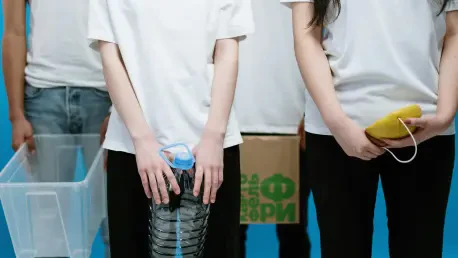Imagine a world where businesses prioritize not just profit, but the planet and its people, while students emerge as catalysts for change in addressing some of the most pressing environmental challenges. This vision is not a distant dream but a growing reality, fueled by the innovative model of B Corps—companies certified for their high social and environmental performance—and the energy of young minds in academic settings. These two forces, when combined, hold immense potential to reshape economies into systems that are inclusive, equitable, and regenerative. The journey toward sustainability demands collaboration across sectors, and recent discussions at university events have spotlighted how these certified businesses and motivated students can lead the charge. By integrating responsibility into corporate practices and education, a powerful synergy emerges, paving the way for impactful solutions to global issues like climate change and social inequity.
The Role of B Corps in Sustainable Innovation
B Corps represent a transformative approach to business, balancing purpose with profit in a way that challenges traditional corporate models. These companies undergo rigorous certification processes to meet strict standards of social and environmental accountability, transparency, and performance. Unlike conventional firms, they are legally required to consider the impact of their decisions on workers, communities, and the environment. This framework not only fosters trust among consumers but also proves that financial success and ethical practices can coexist. Research consistently shows that such businesses often exhibit resilience during economic downturns, attracting talent and customers who value purpose-driven missions. Their influence extends beyond individual operations, inspiring entire industries to rethink supply chains, waste management, and community engagement for a more sustainable future.
The impact of B Corps becomes even more pronounced when they collaborate with educational institutions and emerging leaders. Many of these companies actively seek partnerships with universities to engage students in real-world problem-solving, offering internships, projects, and mentorship opportunities. Such initiatives provide a platform for young innovators to apply theoretical knowledge to practical challenges, like designing products with minimal environmental footprints or developing equitable labor practices. These collaborations also benefit the companies by infusing fresh perspectives and energy into their sustainability strategies. By serving as role models, B Corps demonstrate to students that profitability and positive impact are not mutually exclusive, encouraging the next generation to prioritize ethical considerations in their future careers and entrepreneurial ventures.
Empowering Students as Agents of Change
Students today are uniquely positioned to drive sustainability forward, armed with access to education, technology, and a growing awareness of global challenges. Universities are increasingly becoming hubs for environmental advocacy, hosting events and programs that inspire action and critical thinking. Through keynote addresses and interactive workshops, thought leaders challenge students to become disruptors—individuals who question outdated systems and propose innovative solutions. For instance, academic initiatives that connect students with B Corps provide virtual and in-person opportunities to work on certification processes or sustainability projects. These experiences equip young minds with the skills and confidence to tackle complex issues, fostering a mindset of responsibility that extends beyond the classroom into lifelong commitments.
Beyond formal programs, campuses cultivate a culture of sustainability through diverse activities that encourage personal involvement. From organizing swap shops to reduce waste to hosting discussions on climate action literature, these efforts embed environmental consciousness into daily student life. Such initiatives highlight the importance of community engagement, showing that small, collective actions can lead to significant change. By participating, students learn to integrate sustainable habits into their routines, whether through mindful consumption or advocating for policy changes at local levels. This hands-on approach not only builds a sense of agency but also creates networks of like-minded individuals who can amplify their impact through collaboration, ensuring that the push for a greener future gains momentum with each graduating class.
Building a Collaborative Future for Sustainability
The synergy between B Corps and students underscores a broader movement toward collective responsibility in addressing environmental and social challenges. Businesses bring structure, resources, and scalable models, while students contribute creativity, passion, and a willingness to challenge norms. Together, they form a dynamic partnership that can influence policy, shift consumer behavior, and innovate across industries. Educational institutions play a pivotal role in facilitating these connections, acting as bridges that link theoretical learning with practical application. By fostering environments where dialogue and experimentation thrive, universities ensure that sustainability is not just an academic concept but a lived experience that prepares students for impactful careers.
Reflecting on past efforts, it’s clear that the groundwork laid through university events and corporate-academic partnerships has yielded tangible outcomes. Keynote speeches from sustainability experts inspired countless students to take action, while campus initiatives transformed abstract ideas into concrete practices. Looking ahead, the focus should be on scaling these efforts—expanding access to programs that pair students with purpose-driven companies and integrating sustainability deeper into curricula. Encouraging more businesses to pursue B Corp certification and supporting student-led innovations with funding and mentorship are vital next steps. By continuing to nurture this collaboration, society can build a future where economic systems prioritize the well-being of both people and the planet.









